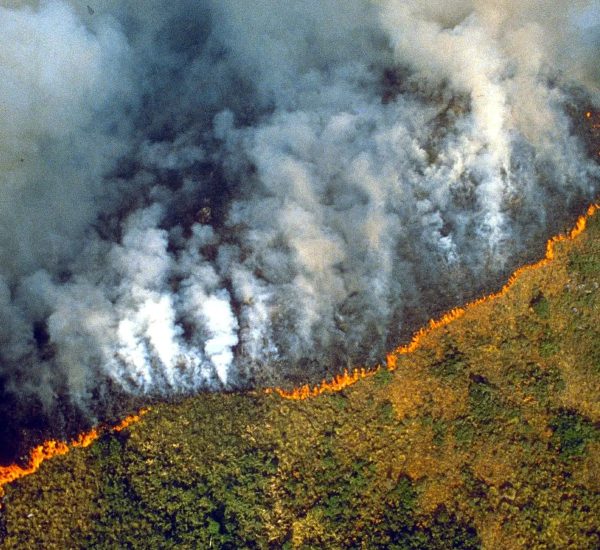Deforestation is one of today’s most pressing environmental challenges. It refers to the destruction or degradation of forests, often caused by human activities such as agriculture, mining, or urban expansion. This loss of forest cover profoundly impacts ecosystems, the global climate, and human communities. In this article, we will examine the causes of deforestation, its effects on the environment, and the solutions to reverse this trend and preserve our forests for future generations.
CAUSES OF DEFORESTATION
Agricultural Expansion
Agriculture is a major cause of deforestation, especially in tropical regions. Forested lands are often cleared to grow crops such as soy, palm oil, and cocoa. Sometimes, these lands are also used to create pastures for livestock. This expansion meets the growing demand for food and consumer products. However, it leads to the destruction of vast forested areas.
Commercial Logging
Another significant cause is the commercial exploitation of trees for timber, paper, and other products. Tropical forests are particularly targeted due to their valuable wood. When logging is not sustainable, it can lead to massive deforestation and loss of biodiversity.
Urbanization and Infrastructure
The growth of cities and infrastructure development, such as roads and dams, also contribute to deforestation. Forested areas are often cleared to make way for new buildings and infrastructure needed for economic growth. This infrastructure construction results in the loss of valuable forest spaces.
Forest Fires
Fires, whether natural or human-induced, can destroy vast tracts of forest. Sometimes, these fires are used to clear land for agriculture or logging. Additionally, climate change increases the frequency and intensity of forest fires.
CONSEQUENCES OF DEFORESTATION
Loss of Biodiversity
Forests host a wide variety of animal and plant species. Deforestation reduces their natural habitat, threatening the survival of many species and contributing to their extinction. This loss of biodiversity weakens ecosystems and reduces their ability to provide vital services. Consequently, the destruction of forests negatively impacts ecological balance.
Climate Change
Forests play a crucial role in regulating the climate by absorbing carbon dioxide (CO2) from the atmosphere. Deforestation releases this CO2, increasing greenhouse gas concentrations and contributing to global warming. Furthermore, deforestation disrupts water cycles and affects precipitation patterns.
Disruption of Local Communities
Many indigenous and local communities rely on forests for their livelihood, whether for food, medicine, or building materials. Deforestation can lead to the loss of these resources and impact the lives of these communities. As a result, these populations face direct consequences on their way of life.
Soil Erosion
Tree roots help hold soil in place. When forests are cut down, the soil becomes more vulnerable to erosion, which can lead to the loss of arable land and affect water quality. Consequently, deforestation has negative effects on agriculture and aquatic ecosystems.
SOLUTIONS TO COMBAT DEFORESTATION
Halting Deforestation and Preserving Forests
To stop deforestation, it is crucial to create protected areas, such as nature reserves and national parks. Establishing and enforcing strict laws against illegal logging and illegal agricultural expansion is also essential for preserving existing forests.
Restoring Degraded Lands and Developing Agroforestry
Reforestation and afforestation play a key role in restoring forest ecosystems. By planting trees on degraded lands, we can restore these ecosystems. In parallel, agroforestry, which integrates trees into agricultural systems, improves productivity while conserving forests.
Sustainable Forest Management and Green Value Chains
Adopting sustainable forest management practices helps minimize the impact of tree exploitation. Encouraging the consumption of certified sustainable forest products creates economic incentives to preserve forests. Additionally, developing markets for these products promotes sustainable forest use.
Deforestation is a complex issue that requires a multifaceted approach to resolve. By combining efforts to halt deforestation, restore degraded lands, and promote sustainable forest use, we can contribute to preserving these vital ecosystems. International cooperation, effective local policies, and public awareness are essential to protecting forests and ensuring a more sustainable future for our planet.
